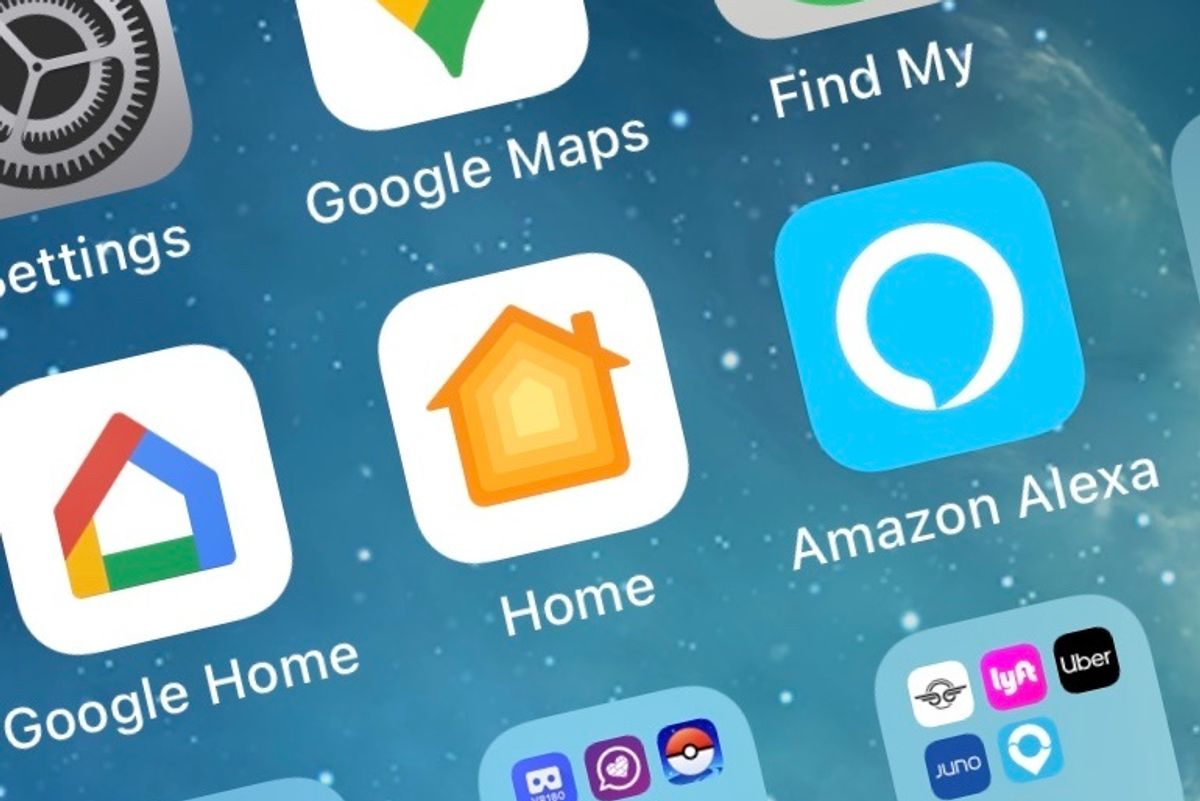
GearBrain
One CHiP to rule them all: Apple, Google, Amazon and Zigbee
Can Apple, Google and Amazon promise to stop competing and share through the Project Connected Home over IP protocol?

Can Apple, Google and Amazon promise to stop competing and share through the Project Connected Home over IP protocol?
Apple, Google and Amazon have all launched new smart home speakers in the past month, updated devices that work with their smart assistants and bring more control to people's home. None of the three, the new Nest Audio, the HomePod Mini nor the Amazon Echo (4th Gen), work with the other — meaning you can't ask Siri to control your Google Home devices, and Google Assistant is not going to answer when you speak to an Amazon Echo. Each of the three has built an independent silo, and none play nice with the other.
But that may be changing in the coming year, through a new protocol called Project Connected Home over IP, or CHiP, a focus for all three companies, joined by the Zigbee Alliance, which announced the certainly unlikely fellowship in December 2019. The goal is to build a centralized platform that every smart home device — that presumably wants to — will be able to connect to and then speak to another. And that plan is going to be ready by 2021, they say.

How CHiP will work
Think of CHiP like a translator for tech devices, a center that all other companies could spoke off of, still retain their own systems, but work with the other. But how that translator will work is still in the air. A draft of the standard is first set to be released by late 2020, which has just a couple of months left, and the group says it has a "goal of releasing the standard in 2021," according to an update it posted in September.
There's certainly interest, and commitment, with more than 145 companies onboard as members, and even a GitHub where they're working on the "global open standard," they said. The key working group which started with Apple, Google, Amazon and Zigbee now includes Samsung SmartThings, Ikea, Signify and more.
Even more — the list of smart home devices that are meant to speak together is extensive, and encompass really a majority of the connected products most consumers would likely have in their homes today. The first launch is said to include, "…lighting and electrical (e.g., light bulbs, luminaires, controls, plugs, outlets), HVAC controls (e.g., thermostats, AC units), access control (e.g., door locks, garage doors), safety and security (e.g., sensors, detectors, security systems), window coverings/shades, TVs, access points, bridges and others," said the group.

IP to start
The standard will be built on IP — internet protocol — which the group believes will allow for the widest inclusion of products, and also addresses issues of privacy and security. First up will be Wi-Fi, including Wi-Fi 6, Thread along with Bluetooth Low Energy. Also expected to be included will be Ethernet connections, cellular and broadband. Not every product will have to work on every connection — nor will they — but every product will need to support one of the technologies.
The ultimate end goal is that should you bring home a device, it should be able to work with Amazon Alexa, Apple's Siri and Google Assistant — and you won't have to worry about whether they bought a smart lock that works with one or the other.

But, that doesn't mean the unique experience offered by each of the smart assistants, for example, goes away. There won't be one voice, so to speak, that talks for all. And given the investment made by the biggest three, Apple, Amazon and Google, that make sense. The group even states emphatically that The Working Group "…at this time does not intend to standardize smart home user interfaces such as voice assistants, smart displays, or desktop and mobile apps."
Like the way people can send a text to their pal from an Android device to an iPhone, these smart home devices connected via CHiP, should be able to interact. But Android and iOS haven't merged into one giant operating system. Nor are Siri, Alexa,Samsung's Bixby and Google Assistant going to be hacked into one all-knowing virtual assistant. At least, for now.
Check out The GearBrain, our smart home compatibility checker to see the other compatible products that work with Google Assistant, Samsung SmartThings, Philips Hue, Apple HomeKit and Amazon Alexa enabled devices.
Introduction of The GearBrain, The First Compatibility Find Engine for Smart Deviceswww.youtube.com
GearBrain Compatibility Find Engine
A pioneering recommendation platform where you can research,
discover, buy, and learn how to connect and optimize smart devices.
Join our community! Ask and answer questions about smart devices and save yours in My Gear.
